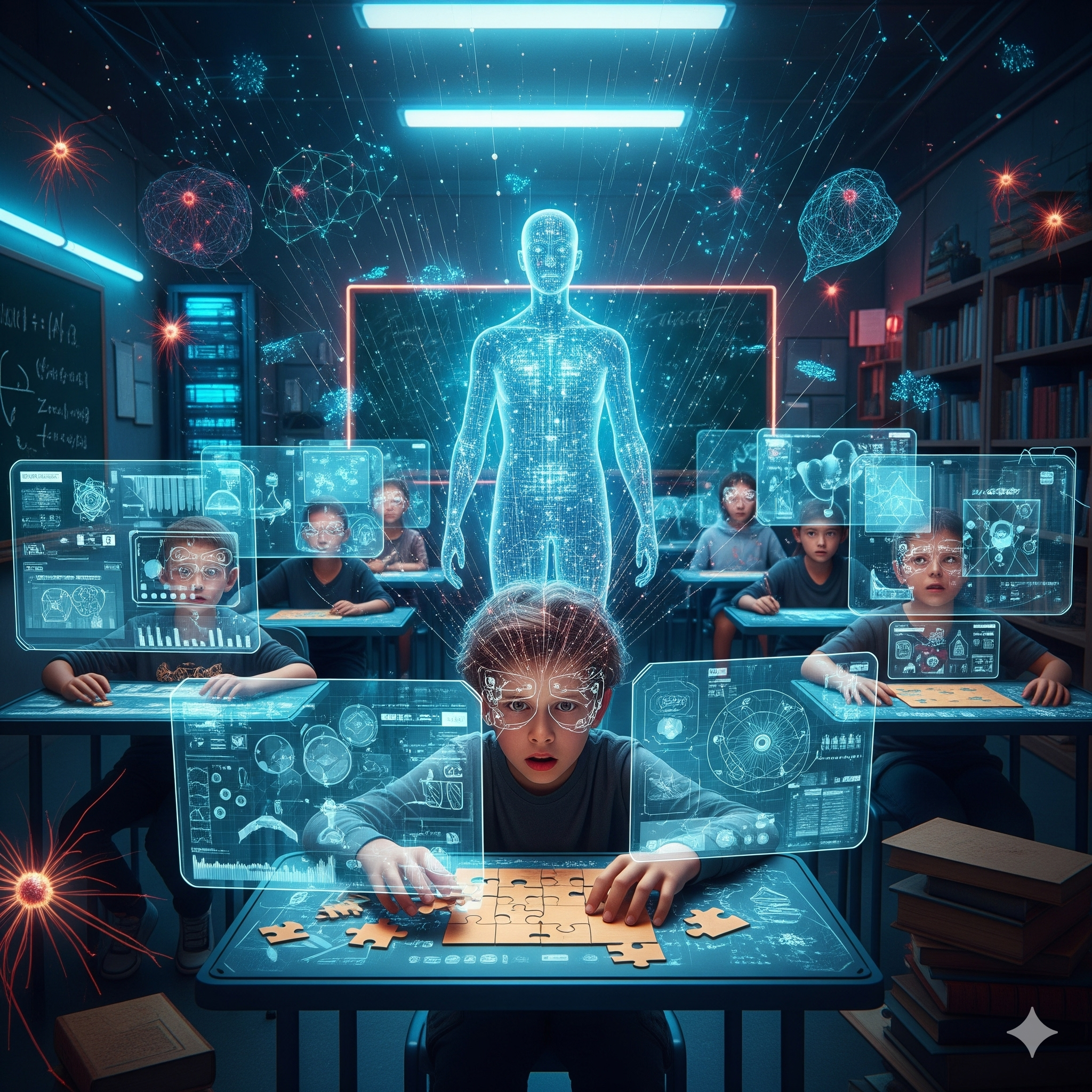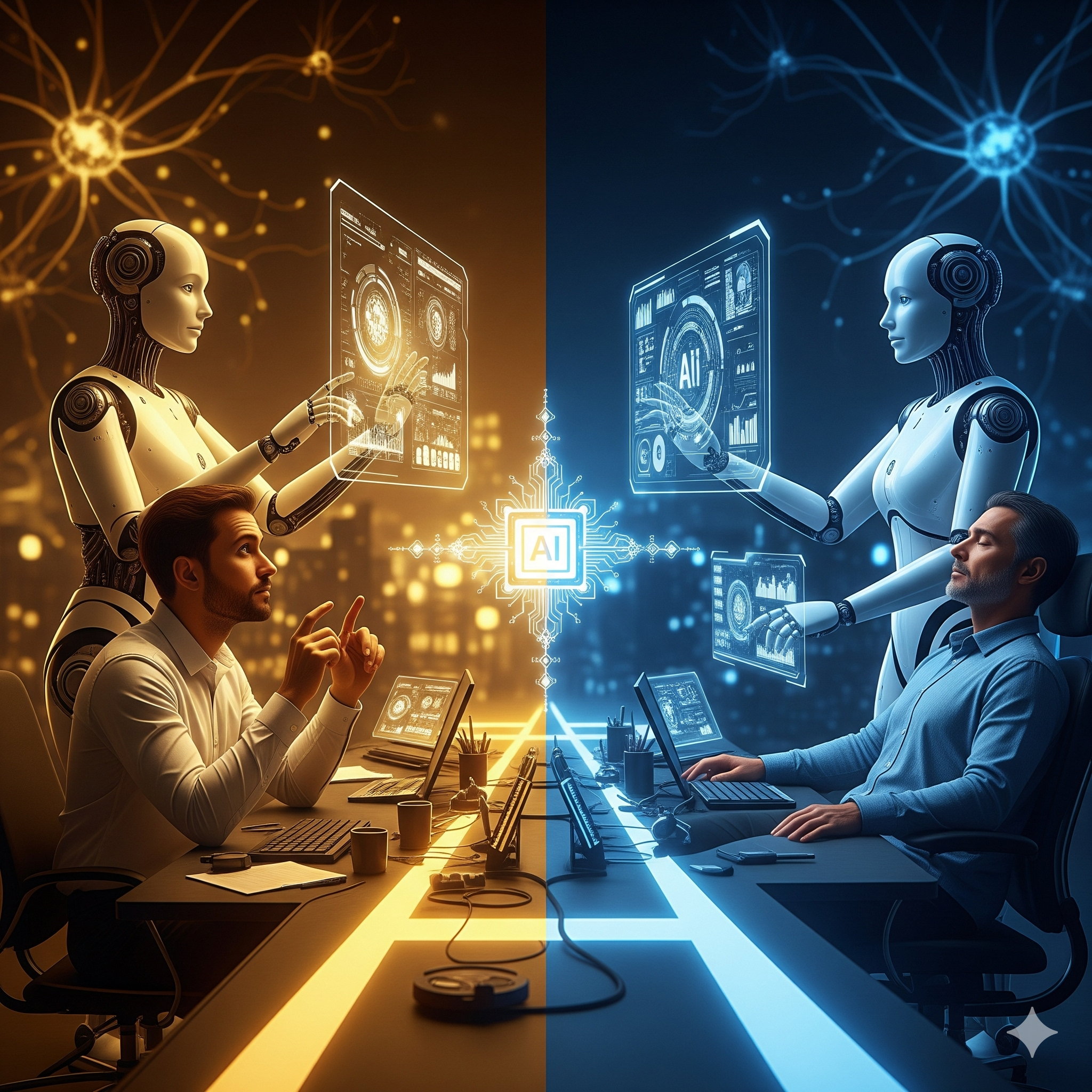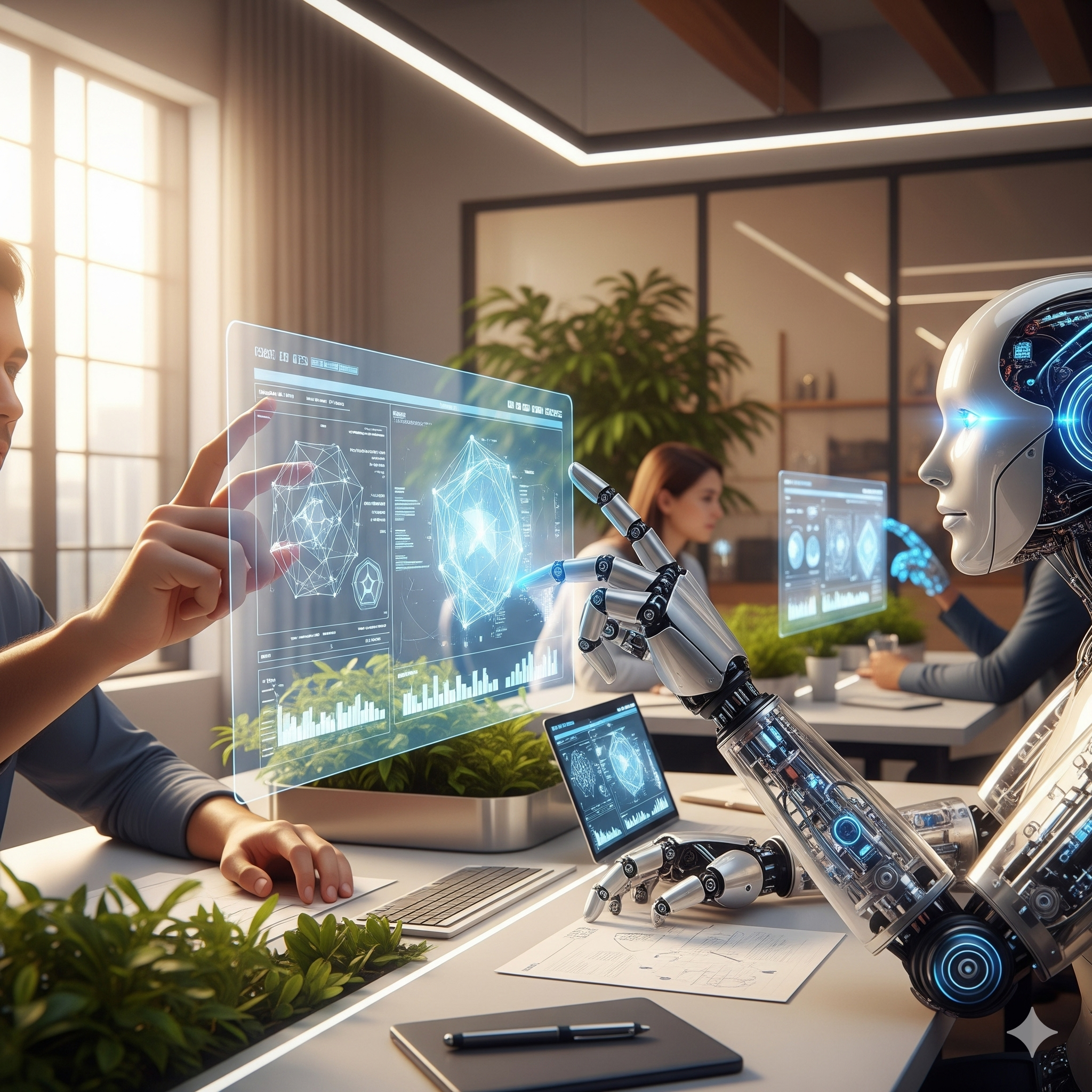Can AI Make Kids Forget How to Think? Memory and Problem-Solving in the Digital Age

Artificial Intelligence (AI) and Children's Thinking
Artificial Intelligence (AI) is becoming part of our daily lives. From schools to homes, children are growing up with smart devices and learning apps that promise to make education easier and faster. But this brings us to a very big question:
Can AI make kids forget how to think?
This question is not only about technology, but also about the future of children’s memory, problem-solving, and creativity. Will AI act as a strong helper that improves learning, or will it become a crutch that makes the brain lazy?
How Children Learn to Think: The Growing Brain
To understand how AI might change children’s thinking, we must first understand how their brains naturally develop. A child’s brain is not the same as an adult’s brain—it is more flexible, open, and constantly changing.
This ability is called neuroplasticity. It means the brain grows and builds new connections based on experiences. Imagine walking in a forest: the first time, the path is rough and hard to see. But if you keep walking, the path becomes clear and easy to follow. In the same way, when a child practices a skill, the brain creates strong pathways. If the skill is ignored, the path disappears. This is why people say: “use it or lose it.”
Child psychologists like Jean Piaget and Lev Vygotsky showed us how children think differently at different stages. Piaget explained that young kids learn through senses and actions, and only later can they think abstractly. Vygotsky taught us that children learn best with the help of others—parents, teachers, or even peers—who guide them step by step.
Interestingly, children’s limits can also be strengths. Their small memory capacity forces them to focus on little chunks, which makes them surprisingly good at learning languages and spotting new patterns.
The AI Dilemma: Helper or Shortcut?

AI is like a double-edged sword. On one side, it can be a wonderful teacher, giving personalized lessons, explanations, and quizzes. On the other side, it may cause cognitive offloading—when we let machines do the thinking for us.
This is not new. We already use calculators for math and Google for facts. But AI goes deeper—it can write essays, solve problems, and even create art. If children always depend on AI, they may lose the habit of thinking for themselves.
Think of an airline pilot. Autopilot makes flying safer and easier, but if the pilot relies too much on it, they may forget how to fly manually. In an emergency, this becomes dangerous. The same can happen with kids: if they always let AI think, their own problem-solving skills may weaken.
Risks of Over-Reliance on AI
- Weaker Critical Thinking: Instead of asking questions and solving problems, kids may simply accept what AI says.
- Skill Loss: Like skipping the planning stage of writing, children may miss the chance to build important foundational skills.
- Poor Memory: Studies show that when students use AI to write, they remember less of the content later.
- Less Resilience: Learning is not only about answers—it is also about the struggle. AI can remove this struggle, which means children may not learn how to handle difficult challenges.
- Lower Social Skills: If kids spend more time with AI than with teachers or classmates, they may lose practice in teamwork, empathy, and real communication.
A Balanced Way Forward: AI and Human Together

The solution is not to ban AI, but to use it wisely. AI should be a copilot, not the pilot. Children must stay in control. Here are some strategies for parents and teachers:
- Teach AI Literacy – Kids should know that AI can be wrong, biased, or even make up facts. They must learn to use it carefully.
- Encourage Critical Thinking – Instead of accepting answers, children should question AI, check facts, and think further.
- Blend AI with Human Learning – Combine AI tools with traditional methods like classroom discussions, creative writing, and teamwork.
- Promote Active Use – Use AI as a tool for brainstorming or creating practice quizzes, but don’t let it replace human explanation and conversation.
- Support a Growth Mindset – Remind kids that intelligence grows with practice and effort. AI should be a helper, not a shortcut.
Final Thoughts
So, can AI make kids forget how to think? The answer is: only if we let it.
AI can be a powerful tool to support learning, but it cannot replace the human brain. Just as calculators never replaced the need to understand math, AI should not replace the need to think. If used wisely, AI can free children to focus on creativity, curiosity, and deeper understanding. But if used carelessly, it may weaken the very skills that make us human—memory, problem-solving, and imagination.
The future belongs to children who can use AI without losing themselves. And that depends on how parents, teachers, and society guide them today.
✨ What do you think? Should schools limit AI use, or should children be free to explore it fully?
